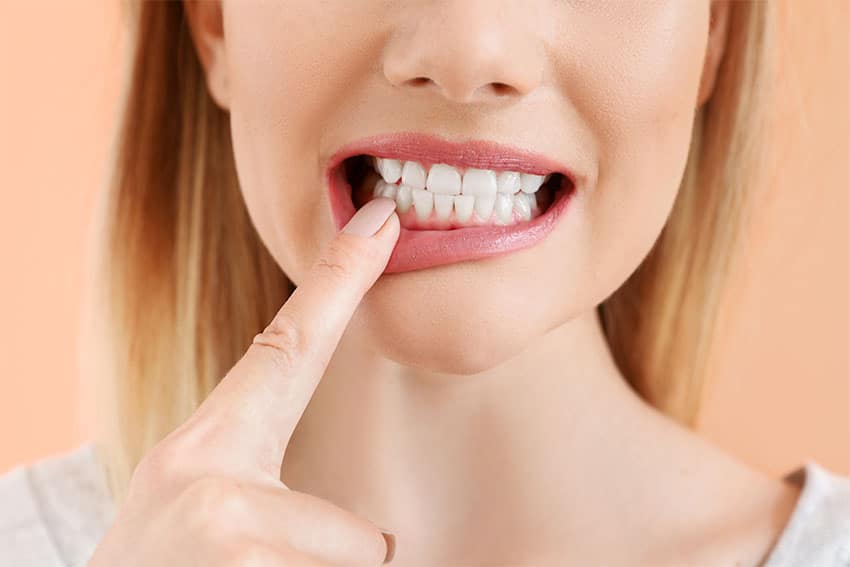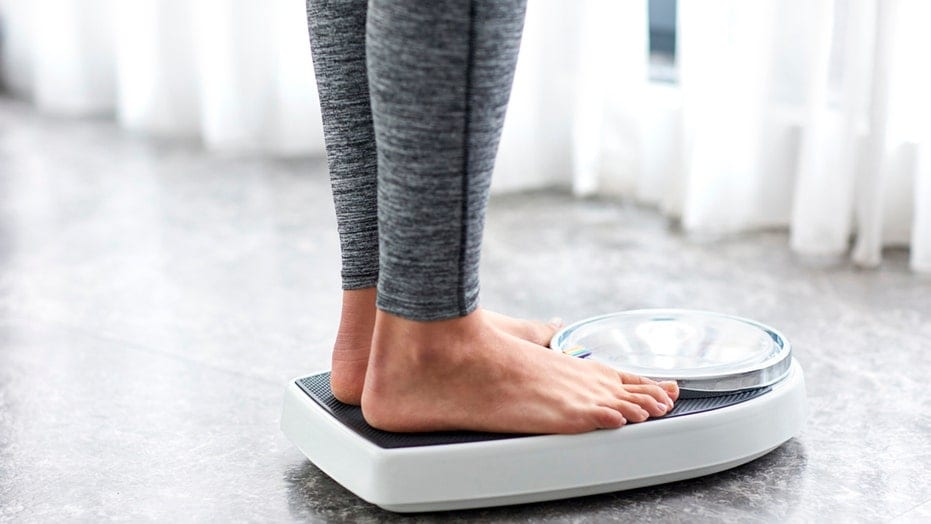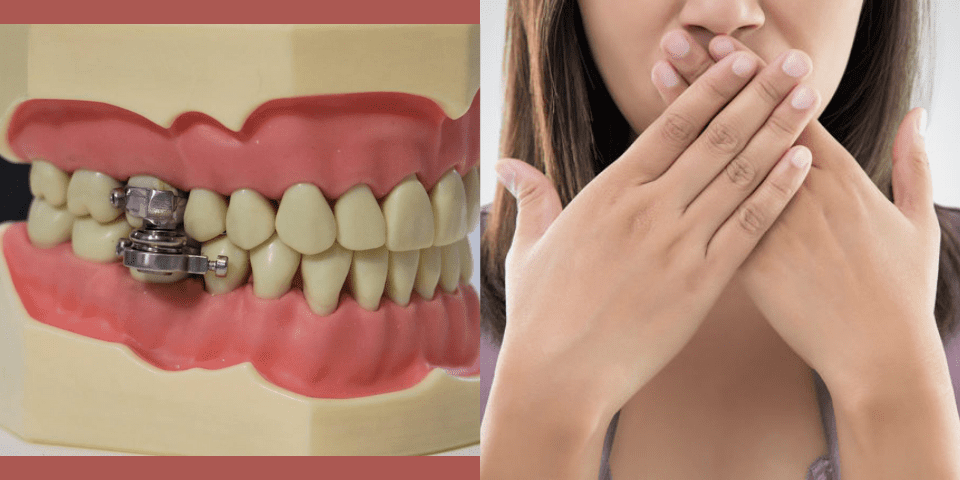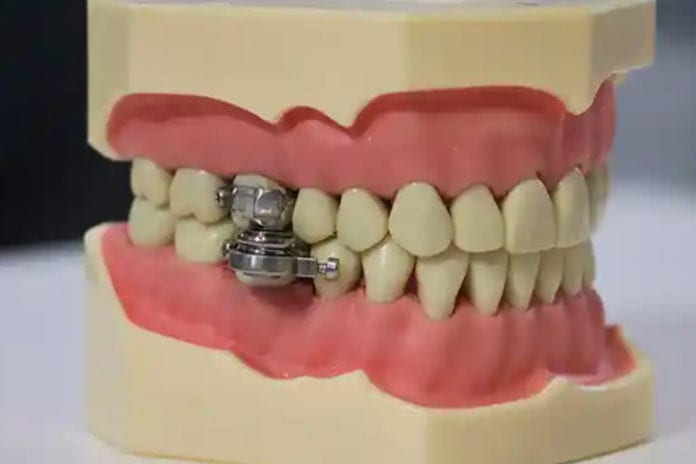A new device called the DentalSlim Diet Control has been developed by scientists, that prevents people from opening their mouths properly so to help people with unhealthy obesity. The device allows us to open our mouths only 2mm wide and it has been curated by medical professionals from the University of Otago in New Zealand and scientists from Leeds in the UK. Dr Jonathan Bodansky and Dr Richard Hall of RMH consultancy in Leeds were a part of the research team behind the product. The University of Otago tweeted that it was “a world-first” weight-loss device “to help fight the global obesity epidemic.”

The details of this innovation have been published as a research paper in the British Dental Journal. Initially, as a part of the trials, it was tested on seven otherwise healthy obese women from Dunedin in New Zealand, who were put on a low-calorie liquid diet for about two weeks. An article published in the same reported that the group of women had lost a decent amount of weight, around 6.36kg – almost 5.1% of their body weight.
Researchers said DentalSlim Diet Control doesn’t restrict free speech or breathing but the device can serve as an alternative to surgical procedures like bariatric surgery. It can be fitted by a dental professional to the upper and lower back teeth using magnetic components with locking bolts to lock the jaw shut. It forces its users to stop consuming solid foods and strictly adhere to a liquid diet. Moreover, a safety release mechanism has been installed so that the device can be released by the user in case of an emergency if a person chokes or experiences a panic attack while wearing this tool.

In the words of Prof Brunton, the pro-vice-chancellor of the University of Otago Health Sciences department, who led the team of researchers, “The main barrier for people for successful weight loss is compliance and this helps them establish new habits, allowing them to comply with a low-calorie diet for a period of time. It’s an effective, safe, and affordable tool for people battling obesity.”
Although being touted as the next big innovation in the UK, DentalSlim Diet Control has been criticized by netizens with people linking it to medieval torture devices. It uses magnets to lock an obese person’s jaws so that they can’t open their mouths wide enough to eat solid food. The DentalSlim Diet Control has received its fair share of criticism online, with people on Twitter saying: “You don’t need this torture device to go on a liquid diet.” Many people supported the thought and shared that when motivated enough, they could achieve their goals without the device as well.
To clarify the issue, the University of Otago said: “The intention of the device is not intended as a quick or long-term weight-loss tool. Rather, it is aimed to assist people who need to undergo surgery and who cannot have the surgery until they have lost weight.” Prof Brunton added, “It is a non-invasive, reversible, economical, and attractive alternative to surgical procedures.”

According to Dr Ashutosh Tondare, a breast surgical oncologist practising in London, “I have gone through the scientific publication of DentalSlim Diet Control, which is in British Dental Journal. It appears that the safety of patients was taken care of in all possible manners. The device is applied for 14 days only. Being such a short treatment, it would not cause any long-term problems with jaw movements/speech. But this research involved only 7 patients, which cannot completely represent the obese population. All patients were well above 100 kg and lost 6.36 kg weight on average – which is significant.”
Dr Tondare also highlighted that such guarantees are achievable in the controlled conditions of research settings where the liquid diet was monitored by the research team – so the details such as calorie content, presence of necessary enzymes, proteins, minerals, carbohydrates, etc were handled by experts.
But using an implant like DentalSlim Diet Control – even for a little while – may likely have psychological ramifications for the patient. It can’t be stressed enough that obesity is no longer just a physical ailment, it has profound psychological aspects as well. A mental health expert (MD Psychiatry) who did not wish to be named said, “It can accelerate stigma and discrimination for people suffering from eating disorders which may hamper the acceptance (of obese people) by society too.”

It is obvious that if a person wants to get rid of a problematic lifestyle, they have to start building good habits from within since there is every chance that the person might go back to the same practice of poor diet and unhealthy lifestyle even after 2 weeks of using DentalSlim Diet Control, which then defeats the whole purpose of this invention.
Is DentalSlim Diet Control ethical?
Ethical approval was retrieved from the Health and Disability Ethics Committees (HDEC) (approval number 16/NTB/89), and the study was conducted in full conformity with the World Medical Declaration of Helsinki and coordinated with the STROBE statement for observational studies.
After obtaining written, informed approval, the participants shared demographic information that contained their personal details and self-reported ethnicity. Baseline screening tests were implemented using full dental charting and complete dental inspection was carried out by the primary investigator to monitor whether the individual was a suitable candidate for the study. The clinical trial was registered in the Australia New Zealand Clinical Trials Registry (https://www.anzctr.org.au) and received the registration ID ACTRN12616001198415.
Further reading:


